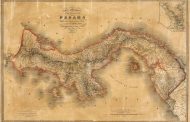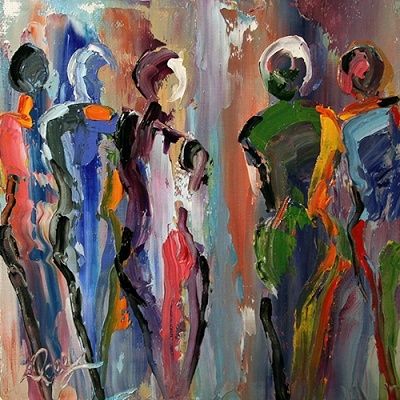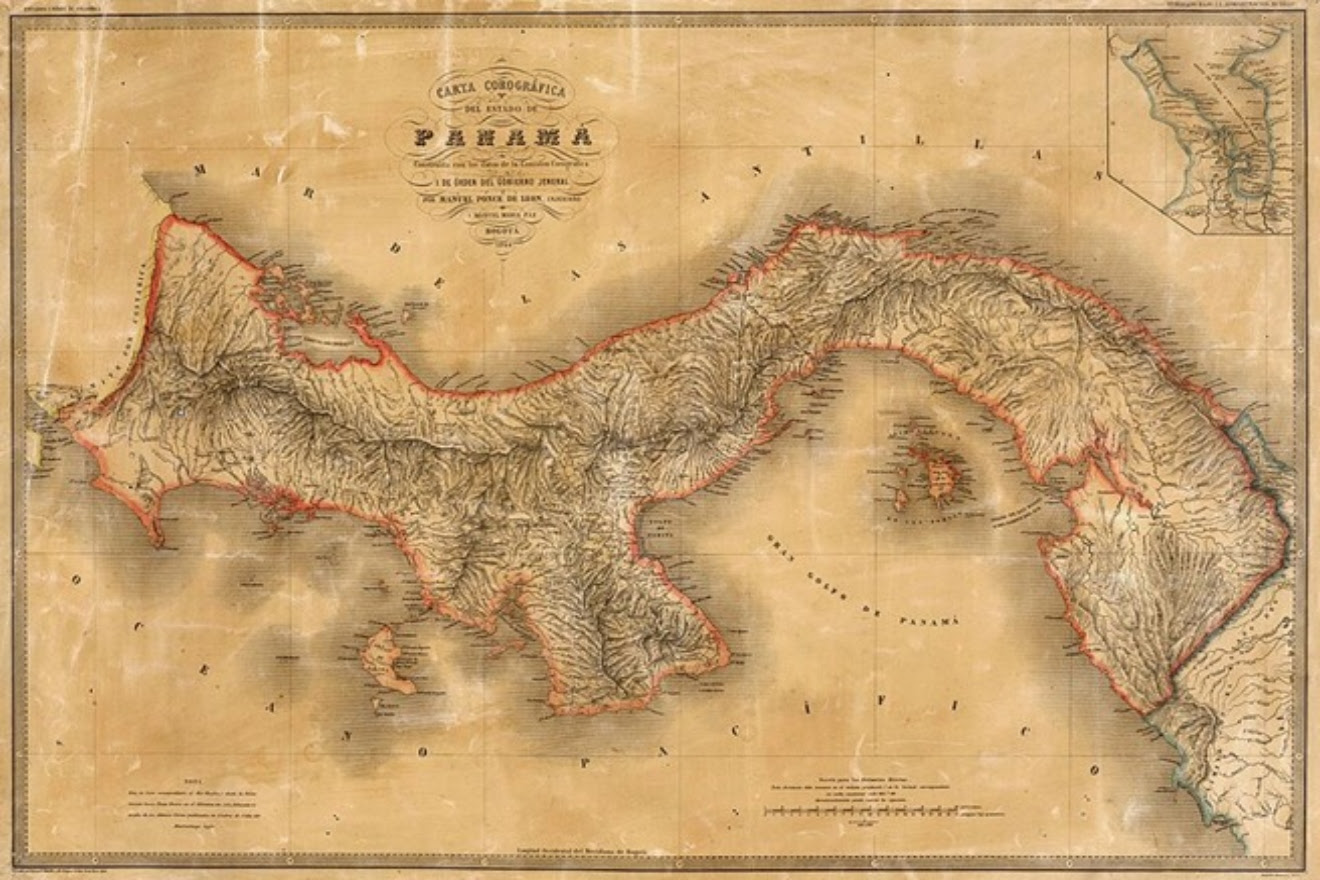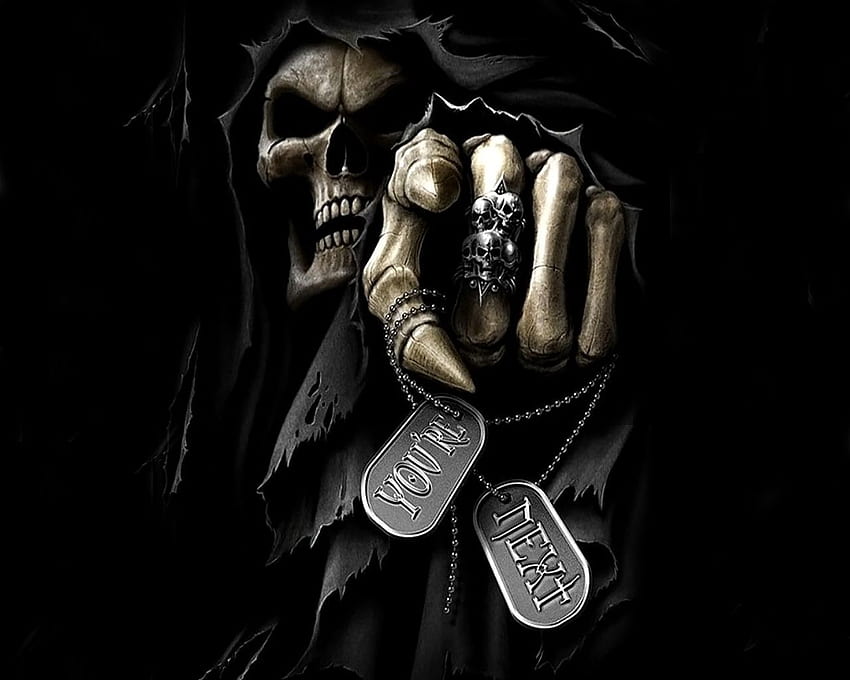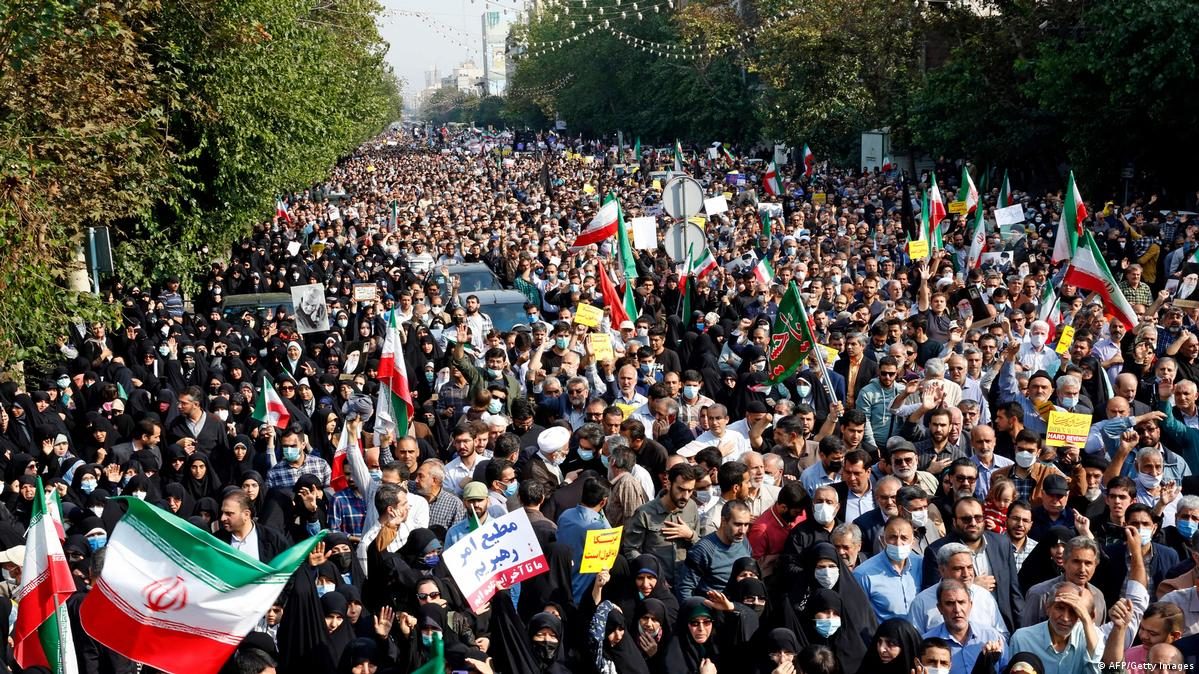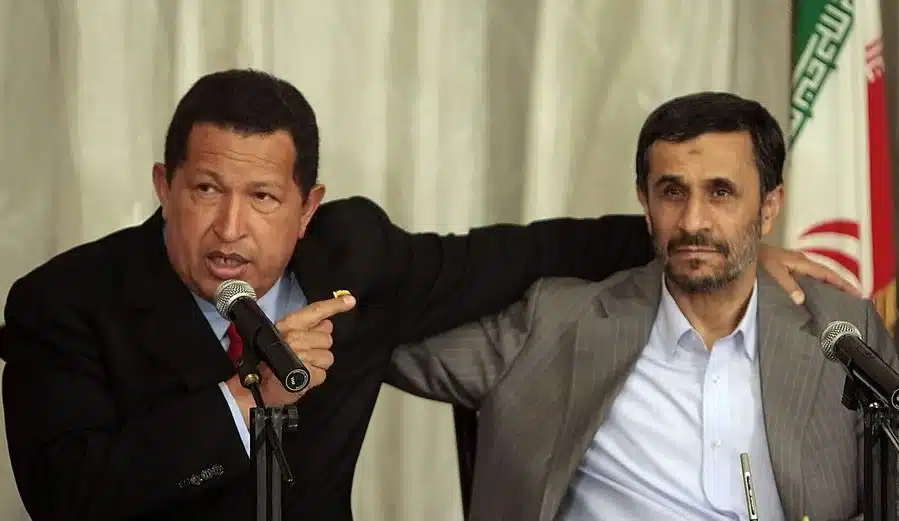
Steve Lalla * / Orinoco Tribune
(Traducción libre de ensartaos)
En una entrevista reciente con Jyotishman Mudiar de India & Global Left, el respetado analista geopolítico Ben Norton ofreció una explicación detallada de por qué Venezuela ha sido blanco de un cambio de régimen por parte del imperialismo estadounidense desde que Hugo Chávez fue elegido presidente en 1998.
“Venezuela es el ejemplo perfecto de todo lo que teme el imperio estadounidense”, dijo Norton durante la entrevista, “un proyecto revolucionario que no solo busca el control soberano de sus recursos naturales y expulsar a las corporaciones multinacionales estadounidenses, eso es lo primero… Lo segundo es que Venezuela siempre ha sido, desde la revolución, una voz clave en la integración regional latinoamericana. Lo tercero es que Venezuela ha intentado integrar América Latina con Asia y África como parte de un proyecto más amplio del Sur Global. En cuarto lugar es que Venezuela, en particular, mantiene relaciones muy estrechas con China y Rusia y cooperación militar, no solo económica y política… Así que Estados Unidos ha estado desesperado por intentar desestabilizar y derrocar al gobierno venezolano durante muchos años.
“Este es otro intento más, y la estrategia que Trump está utilizando ahora es este disparate sobre las drogas, lo cual es completamente absurdo. Observen los datos de la ONU de los principales expertos en el tráfico mundial de drogas. Dicen que Venezuela tiene una producción de drogas insignificante. El mayor productor de cocaína del mundo es Colombia, vecino de Venezuela, que históricamente ha sido el aliado más cercano de Estados Unidos en la región, dominada históricamente por regímenes oligárquicos de derecha y muy conservadores. Por primera vez en la historia de Colombia, ahora mismo, desde 2022, tienen un presidente de izquierda. Por primera vez en la historia. Ha habido candidatos presidenciales de izquierda asesinados en la historia de Colombia. Así pues, Gustavo Petro, el actual presidente, es el primer líder de izquierda de la historia, y Estados Unidos también ha respaldado intentos de golpe de Estado en su contra, especialmente Marco Rubio, quien odia a Petro y está constantemente atacándolo públicamente. Pero Colombia, como todos saben, es el epicentro mundial de la cocaína. La gran mayoría de la producción de cocaína en la historia ha provenido de Colombia y, en menor medida, de Perú y Bolivia. Y Ecuador juega un papel clave en el transporte de cocaína. Actualmente, Ecuador está gobernado por un ciudadano estadounidense, Daniel Noboa, hijo del oligarca multimillonario más rico de Ecuador, un país relativamente pobre, pero es el multimillonario más rico —posee personalmente puertos— y está muy bien documentado en Ecuador que Noboa padre, el oligarca, utiliza sus puertos privados para exportar cocaína en cajas de banano… Estados Unidos ignora todo esto porque Ecuador ahora es un aliado cercano de Estados Unidos bajo este títere estadounidense, que es literalmente ciudadano estadounidense, nacido en Florida. Es una locura que los países latinoamericanos permitan que ciudadanos estadounidenses sean sus presidentes.
Venezuela: el contexto general
Además de hablar sobre los acontecimientos actuales y el panorama geopolítico actual, Norton ofreció un análisis detallado de la historia reciente de Venezuela, describiendo con precisión por qué el país está en la mira del imperialismo estadounidense y, una vez más, en los titulares de los medios tradicionales.
“Forma parte de un contexto más amplio”, explicó Norton, “y esto está relacionado con el intento de Estados Unidos de afirmar su hegemonía en el hemisferio occidental”. Politico, el principal medio de comunicación estadounidense, publicó una noticia basada en una copia filtrada de la Estrategia de Defensa Nacional que supuestamente está considerando el Pentágono, antes conocido como Departamento de Defensa. Ahora se le ha cambiado el nombre a Departamento de Guerra, su nombre original antes de la Segunda Guerra Mundial. En esta nueva estrategia de defensa nacional, el Departamento de Guerra afirma que su principal prioridad es el hemisferio occidental y que está reafirmando su control sobre la región. En realidad, lo que estamos presenciando es un intento de recuperar la Doctrina Monroe, una doctrina colonial de 200 años de antigüedad, que data de 1823, en la que el gobierno estadounidense básicamente afirmaba que Latinoamérica formaba parte de su esfera de influencia imperial. Cuando se afirma que Latinoamérica es el supuesto patio trasero de Washington, se trata de una mentalidad colonial. De hecho, durante el primer mandato de Trump, vimos cómo numerosos altos funcionarios del gobierno estadounidense invocaron la Doctrina Monroe, incluyendo a Mike Pompeo, director de la CIA y luego secretario de Estado, y también a John Bolton, el halcón belicista neoconservador que fue asesor de seguridad nacional de Trump. Y no olvidemos que durante el primer mandato de Trump en 2019, Estados Unidos lanzó otro intento de golpe de Estado en Venezuela —uno de los muchos que puedo mencionar— y en este intento de golpe de Estado de 2019, Estados Unidos intentó imponer como supuesto presidente a un político de la oposición de derecha poco conocido en Venezuela. Su nombre era Juan Guaidó. Guaidó nunca había participado en unas elecciones presidenciales, por lo que fue completamente antidemocrático y absurdo. Aun así, Estados Unidos lo reconoció como el supuesto presidente interino de Venezuela. Y obligó a muchos otros países, principalmente europeos, pero también a gobiernos de derecha de Latinoamérica, a reconocer también a Guaidó como parte de un intento de golpe de Estado concertado. El Wall Street Journal informó en aquel momento, en 2019, que la Casa Blanca de Trump había planeado toda esta operación con oligarcas multimillonarios de derecha en Venezuela, incluyendo a Leopoldo López, figura de extrema derecha perteneciente a una de las familias más ricas de Venezuela. Ese intento de golpe fracasó, obviamente. Aún hoy, Nicolás Maduro es el presidente constitucional. Sigue en Miraflores, el palacio presidencial en Caracas.
El petróleo y los orígenes de la guerra económica contra Venezuela
“Ese intento de golpe fracasó”, continuó Norton, “pero como parte de ese intento, Trump amplió masivamente las sanciones contra Venezuela que ya habían comenzado bajo el gobierno de Obama. Trump expandió esas sanciones hasta convertirlas en un embargo económico total, como el bloqueo estadounidense a Cuba, que se ha prolongado durante más de 60 años en flagrante contravención del derecho internacional. Cada año, en la Asamblea General de la ONU, casi todos los países del mundo votan para condenar el bloqueo ilegal estadounidense a Cuba. Incluso toda Europa vota en contra, y los únicos países que votan a favor son Estados Unidos e Israel de forma constante durante más de 30 años. De manera similar, la administración Trump utilizó esa misma estrategia de asfixia económica contra Venezuela, y dañó enormemente la economía venezolana, porque Venezuela ha sido un estado petrolero durante 100 años, mucho antes del nacimiento del líder revolucionario Hugo Chávez. Venezuela ha sido un estado petrolero, e imaginen qué sucedería en Arabia Saudita si Estados Unidos impusiera un bloqueo a Arabia Saudita e intentara impedirle exportar su petróleo. Es muy… Es probable que la monarquía saudí colapse en una o dos semanas. El hecho de que el gobierno venezolano haya logrado mantenerse en el poder demuestra que el proceso revolucionario iniciado por el anterior presidente, Hugo Chávez, aún cuenta con un amplio apoyo popular… Estados Unidos ha respaldado numerosos intentos de golpe de Estado en Venezuela durante décadas —en 2002, 2014, 2017 y 2019— y ahora respalda otro intento de golpe. Y, por supuesto, parte de esto, una razón principal de la que mucha gente habla, y que no es insignificante, es el hecho de que Venezuela posee las mayores reservas de petróleo del mundo. Solía ser una fuente de ingresos para las principales corporaciones estadounidenses de combustibles fósiles como Exxon, que explotaban el petróleo venezolano, y Hugo Chávez, el líder revolucionario, expulsó a las compañías estadounidenses de combustibles fósiles y nacionalizó por completo la industria petrolera venezolana, dirigida por la empresa estatal PDVSA.
El papel clave de Venezuela en el mundo multipolar
“Desde el inicio de la revolución bajo Hugo Chávez en 1999”, detalló Norton, “Venezuela siempre ha sido una fuerza muy progresista en la región, impulsando la integración regional latinoamericana contra la hegemonía estadounidense, lo cual es muy importante, pero también profundizando la integración y la cooperación sur-sur. Chávez lo reconoció desde que asumió el cargo en Venezuela en 1999. En ese momento no hablaba de socialismo. Era un nacionalista de izquierda, pero lanzó la Revolución Bolivariana influenciado por Simón Bolívar, el general que lideró la guerra contra el colonialismo español, liberó a Sudamérica del Imperio español y creó los estados nacionales modernos en Sudamérica, incluyendo Venezuela, Colombia y Bolivia. Así que Chávez fue influenciado por este legado revolucionario de Bolívar. Originalmente no hablaba de socialismo. Fue influenciado por este legado anticolonial, y era un nacionalista de izquierda, pero fueron los golpes de Estado respaldados por Estados Unidos, especialmente en 2002, y los ataques a su gobierno, su gobierno democráticamente elegido, eso lo radicalizó y lo inclinó hacia la izquierda, y comenzó a hablar del socialismo del siglo XXI. La cuestión es que Chávez, incluso antes de su giro socialista, siempre reconoció la importancia de Venezuela en la construcción de un mundo multipolar. De hecho, en 1998, año de las elecciones presidenciales que ganó Chávez, pronunció un famoso discurso en Caracas en el que habló sobre la importancia de construir un mundo multipolar.
Ahora bien, si escuchamos a algunas personas hablar hoy sobre este proyecto multipolar, generalmente lo atribuyen a China y Rusia, pero es muy importante destacar que otras partes del Sur Global, incluyendo, especialmente, las fuerzas de izquierda en América Latina, también han estado hablando de esto durante décadas. Chávez, en 1998, y Lula da Silva, en sus dos primeros mandatos como presidente de Brasil, en la década de 2000, también hablaron sobre la importancia de la multipolaridad. La izquierda latinoamericana ha hecho de esto una prioridad significativa. Por supuesto, Lula fue uno de los arquitectos de los BRICS en 2009, cuando aún era presidente de Brasil, y Chávez fue parte integral de este movimiento, en particular, bajo su liderazgo en Venezuela desde 1999 hasta su muerte en 2013. Fue realmente el primer líder latinoamericano que realmente se alió estrechamente con China porque, por las razones históricas de la ruptura chino-soviética, y especialmente después del viaje de Nixon a China en 1972… la gran mayoría de la izquierda latinoamericana se inclinó mucho más hacia la Unión Soviética, especialmente hacia Cuba, aunque desde entonces Cuba ha mantenido muy buenas relaciones con China. Pero la izquierda latinoamericana, en su mayor parte, en la llamada división chino-soviética, en el llamado argumento antirrevisionista, fue condenada por las fuerzas maoístas como «revisionistas», entre comillas. Obviamente, tengo muchos problemas con ese argumento, pero la realidad es que la mayoría de la izquierda latinoamericana no tenía una visión muy positiva de China. Fue realmente Chávez y luego, después de él, Rafael Correa en Ecuador, quienes realmente comenzaron a mirar más hacia China. Hay estudios académicos que analizan los acuerdos de Venezuela con China, y simplemente se dispararon. El número de acuerdos firmados, los acuerdos bilaterales firmados entre Venezuela y China simplemente se disparó bajo Chávez, y esto ha continuado bajo Maduro.
«Así que Chávez jugó un papel muy importante en la profundización de la integración de América Latina con China y, por supuesto, con Rusia. La Unión Soviética —y también, luego de su derrumbe en 1991, la Federación Rusa— mantuvo vínculos muy estrechos con la izquierda latinoamericana y se ha mantenido como un socio cercano de Cuba, Venezuela, Nicaragua y otros países latinoamericanos. Venezuela también ha sido un objetivo importante de Estados Unidos debido a esas relaciones y también [debido a sus relaciones con] Irán. A mucha gente, si lo piensas simplemente desde el punto de vista ideológico, le parece un poco extraño. Superficialmente, se podría decir que Irán es una república islámica. Tiene una orientación religiosa. Socialmente, es bastante conservador, aunque a menudo se subestiman las políticas económicas progresistas, el sólido estado de bienestar iraní y las políticas redistributivas, en particular los programas sociales, la vivienda pública, etc. Cuando Ahmadineyad era presidente de Irán y Chávez era presidente [de Venezuela], forjaron una estrecha amistad y colaboración. A primera vista, se dice que es un poco extraño que la República Islámica de Irán se aliara tan estrechamente con la izquierda latinoamericana, pero también se observa la política exterior iraní, que es muy anticolonial, algo así como lo que antes se llamaba solidaridad nacionalista tercermundista con el sur global, con América Latina y África.
Donde se encuentran el sector energético y la multipolaridad
“Venezuela también se acercó mucho a Irán”, continuó Norton, “y la alianza con Irán también fue muy significativa porque, después de que Estados Unidos impusiera fuertes sanciones a Venezuela, Irán proporcionó mucha asistencia tecnológica para ayudar a reparar y modernizar la industria petrolera venezolana, ya que, como dije, Venezuela ha sido un estado petrolero durante un siglo, mucho antes de que comenzara la revolución bajo el liderazgo de Chávez en 1999, y en la industria petrolera venezolana, toda la tecnología provenía de Estados Unidos. Toda.
Estados Unidos comenzó a imponer sanciones a Venezuela, comenzando con Obama en 2015. Obama firmó una orden ejecutiva en 2015, declarando a Venezuela una amenaza extraordinaria para la seguridad nacional estadounidense, lo cual es completamente absurdo, obviamente. Es decir, ¿la gente cree que Venezuela va a bombardear a Estados Unidos? Es un completo disparate. Pero esta fue la justificación legal necesaria para imponer sanciones unilaterales sin la aprobación del Congreso… La guerra económica se aceleró con Obama en 2015, y Venezuela ya no pudo comprar tecnología para reparar y modernizar su infraestructura petrolera, que comenzó a deteriorarse. Así que, entre las sanciones y la incapacidad de modernizar su infraestructura petrolera, la producción petrolera venezolana colapsó, e Irán, de hecho, jugó un papel importante, junto con Rusia y China, que también tienen importantes industrias petroleras estatales. Esos tres países, pero en particular Irán, desempeñaron un papel clave al ayudar a reparar, modernizar y cambiar gran parte de la inversión de capital real en la formación de capital fijo, los activos fijos en la industria petrolera venezolana.
El punto es que Venezuela tiene este proyecto revolucionario de izquierda, y empezaron a hablar de socialismo, de construir la unidad latinoamericana y de crear instituciones como la Comunidad de Estados Latinoamericanos y Caribeños (CELAC), incluyendo el ALBA, la Alianza Bolivariana, que busca construir un bloque económico en América Latina que prescinda del dólar estadounidense. Venezuela y Ecuador eran los dos países más grandes que vendían su petróleo en otras monedas, e incluso crearon una nueva moneda latinoamericana para intentar abandonar el dólar: el sucre, en honor a otro anticolonialista sudamericano que luchó contra el Imperio español. Estaban a la vanguardia de temas que ahora son temas de candente debate en la década de 2020: la desdolarización, la multipolaridad y la cooperación sur-sur. Chávez intentó hacer esto hace 20 años. Se adelantó mucho a su tiempo.
Ben Norton es un periodista y analista geopolítico nacido en Estados Unidos. Vivió durante años en Nicaragua y actualmente reside en China. Norton fundó el Informe de Economía Geopolítica (anteriormente Multipolarista). La entrevista completa con India & Global Left puede verse en YouTube. En la extensa conversación, Norton ofrece contexto adicional sobre el imperialismo estadounidense en América Latina.
* Steve Lalla es periodista, investigador y analista. Sus áreas de interés incluyen la geopolítica, la historia y la actualidad. Ha colaborado con MR Online, Counterpunch, Resumen Latinoamericano en inglés, ANTICONQUISTA, Orinoco Tribune y otros.
Fuente original:
Venezuela Targeted Because it Is ‘the Poster Child of Everything the US Empire Fears’: Ben Norton
Steve Lalla * / Orinoco Tribune
In a recent interview with Jyotishman Mudiar of India & Global Left, respected geopolitical analyst Ben Norton provided an in-depth explanation of why Venezuela has been targeted for regime change by US imperialism since Hugo Chávez was elected to the presidency in 1998.
“Venezuela is the poster child of everything the US empire fears,” said Norton during the interview, “a revolutionary project that is not only trying to seek sovereign control over its natural resources and kick out US multinational corporations, one check… The second box being checked is that Venezuela has always been, since the revolution, a key voice in Latin American regional integration. The third check is that Venezuela has tried to integrate Latin America with Asia and Africa as part of a larger Global South project. The fourth check is that Venezuela, in particular, has very close relations with both China and Russia and military cooperation, not just economic and political cooperation… So the US has been desperate to try to destabilize and overthrow the Venezuelan government for many years.
“This is yet another attempt, and the strategy that Trump is now using is this nonsense about drugs, which is completely absurd. Look at UN data of leading experts on the global drug trade. They say that Venezuela has negligible drug production. The biggest producer of cocaine in the world, is Colombia, Venezuela’s neighbor, which historically has been the closest US ally in the region, which historically has been dominated by right-wing, very conservative oligarchic regimes. For the first time ever in Colombia’s history, right now, since 2022, they have a left-wing president. For the first time ever. There had been left-wing presidential candidates who were assassinated in Colombia’s history. So, Gustavo Petro, the current president, is the first ever left-wing leader, and the US has also been backing coup attempts against him, especially Marco Rubio, who hates Petro and is constantly attacking him publicly. But Colombia, everyone knows, is the global epicenter of cocaine. The vast majority of cocaine production in history has come from Colombia and, at a lower level, from Peru and Bolivia. And Ecuador plays a key role in the transportation of cocaine. Right now, Ecuador is governed by a US citizen, Daniel Noboa, who is the son of the richest billionaire oligarch in Ecuador, a relatively poor country, but the richest billionaire—he personally owns ports—and it is very well documented in Ecuador that Noboa Sr., the oligarch, uses his private ports in order to export cocaine in banana crates… The US is ignoring all of that because Ecuador is now closely allied with the US under this US puppet, who is a literal US citizen, who was born in Florida. It is crazy that Latin American countries allow US citizens to be their president.”
Venezuela: the larger context
In addition to speaking about current developments and today’s geopolitical landscape, Norton provided a detailed review of Venezuela’s recent history, describing precisely why the country is in the crosshairs of US imperialism and in the headlines of legacy media outlets once again.
“It is part of a larger context,” explained Norton, “and this is related to the US attempt to assert hegemony over the Western Hemisphere. Politico, the major US media outlet, published a story based on a leaked copy of the National Defense Strategy that is allegedly being considered by the Pentagon, which used to be called the Department of Defense. It now has been renamed as the War Department, which is the original name before World War II. And the war department, allegedly, in this new national defense strategy, says that its top priority is the Western hemisphere, is reasserting control over the region, and really, what we are seeing is this attempt to bring back the neocolonial—the old-school colonial—Monroe Doctrine. This is a 200-year-old colonial doctrine from 1823 in which the US government essentially said that Latin America is part of its imperial sphere of influence. When people claim that Latin America is Washington’s so-called backyard, this is this very colonial mentality, and we actually saw, during Trump’s first term, that numerous top officials in the US government invoked the colonial Monroe Doctrine, including Mike Pompeo, who was CIA director turned secretary of state, and also John Bolton, who was the neoconservative war hawk who was Trump’s national security adviser. And let’s not forget that during Trump’s first term in 2019, the US launched yet another coup attempt in Venezuela—one of many which I can talk about—and in this coup attempt in 2019, the US tried to impose a little-known right-wing opposition politician in Venezuela as the so-called president. His name was Juan Guaidó. Guaidó had never participated in a presidential election, so it was completely undemocratic and absurd, yet the US recognized him as the so-called interim president of Venezuela. And the US forced many other countries, primarily in Europe, but also right-wing governments in Latin America, to also recognize Guaidó as part of a concerted coup attempt. The Wall Street Journal reported at the time, in 2019, that the Trump White House had planned this entire operation with right-wing multi-millionaire oligarchs in Venezuela, including Leopoldo López, who is a very far-right figure from one of the wealthiest families in Venezuela. That coup attempt failed, obviously. Still today, Nicolas Maduro is the Constitutional president. He’s still in Miraflores, the presidential palace in Caracas.
Oil and the origins of the economic war against Venezuela
“That coup attempt failed,” Norton continued, ”but as part of that coup attempt, Trump massively expanded the sanctions on Venezuela that had already started under Obama. Trump expanded those sanctions into a full-on economic embargo, like the US blockade on Cuba, which has gone on for over 60 years in blatant controvention of international law—every year in the UN General Assembly, almost every single country on earth votes to condemn the illegal US blockade of Cuba. Even all of Europe votes against it, and the only countries that vote to support it are the US and Israel consistently for over 30 years. Similarly, the Trump administration used that same strategy of economic suffocation against Venezuela, and it massively hurt the Venezuelan economy because Venezuela has been a petro state for a 100 years—well before the revolutionary leader Hugo Chávez was even born. Venezuela has been a petro state, and imagine what would happen in Saudi Arabia if the US put a blockade on Saudi Arabia and tried to prevent it from exporting its oil. It is very likely that the Saudi monarchy would collapse in a week or two. The fact that the Venezuelan government has been able to hold on is a testament to the fact that the revolutionary process started by the previous president, Hugo Chávez, still has a lot of popular support… Now, the US has backed many coup attempts in Venezuela going back decades—in 2002, 2014, 2017, 2019—and now they are backing yet another coup attempt. And of course, part of this, one main reason that a lot of people talk about, which is not insignificant, is the fact that Venezuela has the largest oil reserves in the world. It it used to be a cash cow for major US fossil fuel corporations like Exxon that were exploiting Venezuela’s oil, and Hugo Chávez, the revolutionary leader, kicked out the US fossil fuel companies, and he fully nationalized the oil industry in Venezuela, which is run by the state-owned company PDVSA.”
Venezuela’s key role in the multipolar world
“Since the revolution began under Hugo Chávez in 1999,” detailed Norton, “Venezuela has always been a very progressive force in the region in pushing for Latin American regional integration against US hegemony, which is very important, but also in deepening south–south integration and cooperation. Chávez recognized that from when he entered office in Venezuela in 1999. He wasn’t talking about socialism at that time. He was a left-wing nationalist, but he launched the Bolivarian Revolution influenced by Simón Bolívar, who was the general who led the war against Spanish colonialism, freed South America from the Spanish Empire, and created the modern nation states in South America, including Venezuela, Colombia, and Bolivia. So Chávez was influenced by this revolutionary legacy of Bolívar. Originally he was not talking about socialism. He was influenced by this anticolonial legacy, and he was a left-wing nationalist, but it was the US-backed coups, especially in 2002, and the attacks on his government, his democratically elected government, that kind of radicalized him and moved him more toward the left, and he began talking about 21st century socialism. The point is that Chávez, even before his socialist turn, always recognized the importance of Venezuela in building a multipolar world. In fact, in 1998, the year of the presidential election that Chávez won, he gave a famous speech in Caracas in which he talked about the importance of building a multipolar world.
“Now, if you listen to some people today talk about this this multipolar project, they usually attribute it to China and Russia, but it is very important to emphasize that other parts of the Global South, including, especially, left-wing forces in Latin America, have also been talking about this for decades. Chávez, back in 1998, and Lula de Silva, in his first two terms as president of Brazil, in the 2000s, was also talking about the importance of multipolarity. The Latin American left has made this a significant priority. Of course, Lula was one of the architects of BRICS in 2009, back when he was still president of Brazil, and Chávez was very much part of this movement, in particular, under his leadership in Venezuela from 1999 until his death in 2013. He was really the first Latin American leader who really allied closely with China because, for the historical reasons of the Sino–Soviet split, and especially after Nixon’s trip to China in 1972 … the vast majority of the Latin American left leaned much more toward the Soviet Union, especially Cuba, although Cuba has since had very good relations with China. But the Latin American left, for the most part, in the so-called Sino–Soviet split, in the so-called anti-revisionism argument, most of the Latin American left were condemned by the Maoist forces as ‘revisionists,’ in scare quotes. Obviously, I have a lot of problems with that argument, but the reality is that most of the Latin American left did not have a very positive view of China. It was really Chavez and then, after him, Rafael Correa in Ecuador, who really began looking more toward China. There are academic studies that look at Venezuela’s agreements with China, and they just exploded. The number of agreements signed, the bilateral agreements signed between Venezuela and China just exploded exponentially under Chávez, and this has continued under Maduro.
“So Chávez played a very important part in deepening the integration of Latin America with China and, of course, Russia. The Soviet Union—and also after the overthrow of the Soviet Union in 1991, the Russian Federation—maintained very close ties with the Latin American left and has remained a close partner of Cuba, Venezuela, Nicaragua, and other countries in Latin America. Venezuela has also been a major target of the US because of those relations and also [because of its relations with] Iran. A lot of people, if you think about it simply ideologically, it does seem a little strange. Superficially, you might say, well, Iran is an Islamic republic. It has a religious orientation. Socially, it is kind of conservative, although people often underestimate the progressive economic policies, the strong welfare state in Iran, and the redistributive policies—in particular, the social programs, public housing, these kinds of things… When Ahmadinejad was president of Iran and when Chávez was president, they formed a very close friendship and partnership. Superficially, people say it is kind of weird that the Islamic Republic of Iran allied so closely with the Latin American left, but then, you also see Iran’s foreign policy, which is very much anticolonial—kind of what used to be called third-world nationalist solidarity with the global south, with Latin America and Africa.”
Where the energy sector and multipolarity meet
“Venezuela also became very close to Iran,” Norton continued, “and the partnership with Iran was also very significant because after the US imposed heavy sanctions on Venezuela, Iran provided a lot of technological assistance to help repair and modernize Venezuela’s oil industry because, as I said, Venezuela has been a petro state for a century, well before the revolution began under Chávez in 1999, and in Venezuela’s oil industry, all of the technology was from the US. All of it.
“The US began imposing sanctions on Venezuela, starting under Obama in 2015. Obama signed an executive order in 2015, declaring Venezuela to be an extraordinary threat to US national security, which is completely absurd, obviously. I mean, do people think that Venezuela is gonna bomb the US? It’s complete nonsense. But this was the justification legally needed to impose unilateral sanctions without the approval of Congress… The economic war really accelerated under Obama in 2015, and Venezuela was no longer able to to buy technology to repair and update its oil infrastructure, which really started degrading. So between the sanctions and the inability to modernize its oil infrastructure, Venezuelan oil output collapsed, and Iran actually played an important role, along with Russia and China as well, which have significant oil industries, state-owned oil industries. Those three countries, but in particular Iran, played a key role in helping to repair, update, and change a lot of the actual capital investment in the fixed capital formation, fixed assets in Venezuela’s oil industry.
“The point is that Venezuela has this left-wing revolutionary project, and they started talking about socialism, building Latin American unity, and creating institutions like the Community of Latin American and Caribbean States, CELAC, and including ALBA, the Bolivarian Alliance, which is an attempt to build an economic block in Latin America that eschews the US dollar. Venezuela and Ecuador were the two biggest countries that were selling their oil in other currencies, and they even created a new Latin American currency to try to get off the dollar, which was called the Sucre, named after another South American anticolonialist who fought against the Spanish Empire. They were at the cutting edge of things that are now very hotly discussed issues today in the 2020s: dedollarization, multipolarity, south–south cooperation. Chavez was trying to do this 20 years ago. He was very much ahead of his time.”
Ben Norton is a US-born journalist and geopolitical analyst. He spent years living in Nicaragua and currently lives in China. Norton founded the Geopolitical Economy Report (formerly Multipolarista). The entire interview with India & Global Left can be viewed on YouTube. In the lengthy discussion, Norton provides additional context regarding US imperialism in Latin America.
Special for Orinoco Tribune by Steve Lalla





